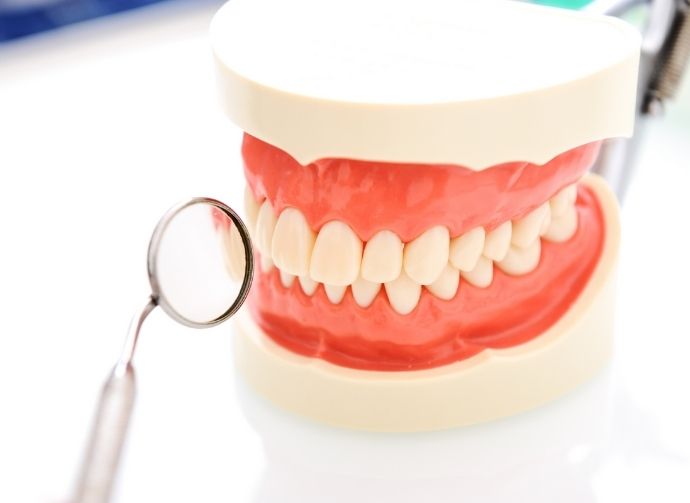More comfortable than ever
Dentures Penrith
Need emergency dental? Call for a same day appointment.

Partial & Complete Dentures in Penrith
We can make your denture fit snugly in your mouth cavity at our affordable dentures clinic in Caddens, Penrith.
What are dentures?
Just like natural teeth, a denture provides support to your lips and cheeks while helping you to chew your food and speak clearly. As such, having a set of dentures not only helps you chew, it restores the appearance and function of healthy teeth, while improving your overall facial appearance.
We offer a variety of prosthetic solutions to choose from. Depending on your specific needs, you can select from our range of full, partial or implant-retained dentures in Penrith. You have the further option of choosing between a fixed or removable type of denture.
What’s the difference between a partial or full denture?
A full denture is a total replacement for either the upper or lower teeth, or both. Any remaining teeth are removed and gum tissue is allowed to undergo preliminary healing before the dentures are placed in the mouth.
Are there any new options for dentures?
Unlike a traditional denture, overdentures utilise up-to-the-minute dental implants for more comfort, stability and durability. A number of implanted attachments are placed in the jaw then the overdentures are positioned securely in place. It means that they are still removable, making them easy to clean.
Are there any difficulties with dentures?
Are there any alternatives to dentures?
Implants are advised for patients with poor bony ridge conditions, hyperactive gag reflex and sore areas of gum that become irritated when supporting a denture.
Looking to complete your smile?
Our trusted dentists can help you make the right decision.
How do you eat with dentures?
Foods and liquids may taste different in the early stages but your sense of taste will eventually improve. It can be difficult to judge temperatures properly due to the insulating quality of the denture, so be careful with hot foods or drinks, otherwise you risk burning your mouth.
It’s also important to take small bites, chewing on both sides of the mouth to keep even pressure on the denture. While you can eat almost anything, you may want to avoid some of the more ‘difficult’ foods, such as crusty breads, tough red meats and chewing gum.
How do you care for dentures?
When brushing each night, use a soft-bristle denture brush with water. Scrub gently to remove any loose food particles, making sure you don’t bend any attachments. After cleaning your teeth, leave your denture in the bathroom to dry as this helps avoid bacterial growth. This ‘rest time’ also helps prevent you from grinding your teeth in your sleep, and gives your mouth a chance to rest.
Dentures can be soaked in a denture cleanser – such as creams, pastes, gels or tablets – or cool water. Get advice from your dentist as some soaking solutions aren’t suitable; it could tarnish any partial dentures that have metal attachments.
Will dentures need any adjusting?
It is common that dentures will require regular adjustment as your jaw line slowly shrinks, changes and shapes over time. As your jaw line changes shape this may cause your denture to no longer fit. The straight forward solution is a reline of your complete or partial denture.

